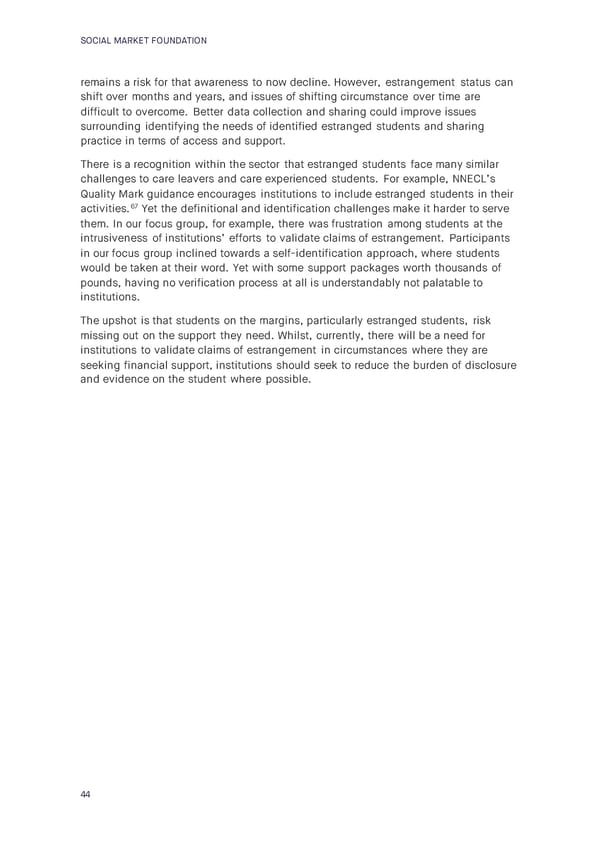SOCIAL MARKET FOUNDATION remains a risk for that awareness to now decline. However, estrangement status can shift over months and years, and issues of shifting circumstance over time are difficult to overcome. Better data collection and sharing could improve issues surrounding identifying the needs of identified estranged students and sharing practice in terms of access and support. There is a recognition within the sector that estranged students face many similar challenges to care leavers and care experienced students. For example, NNECL’s Quality Mark guidance encourages institutions to include estranged students in their activities.67 Yet the definitional and identification challenges make it harder to serve them. In our focus group, for example, there was frustration among students at the intrusiveness of institutions’ efforts to validate claims of estrangement. Participants in our focus group inclined towards a self-identification approach, where students would be taken at their word. Yet with some support packages worth thousands of pounds, having no verification process at all is understandably not palatable to institutions. The upshot is that students on the margins, particularly estranged students, risk missing out on the support they need. Whilst, currently, there will be a need for institutions to validate claims of estrangement in circumstances where they are seeking financial support, institutions should seek to reduce the burden of disclosure and evidence on the student where possible. 44
 Care and Learning in Higher Education Page 44 Page 46
Care and Learning in Higher Education Page 44 Page 46